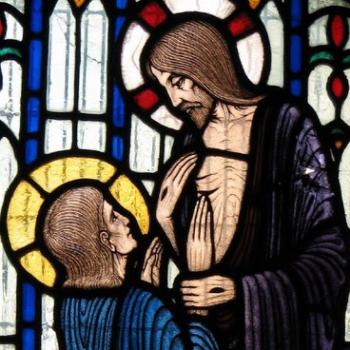Spain's Population is Laissez-faire About Cultural Change.
Spain both is and isn't conservative. Socially, or rather culturally, Spain prides itself on maintaining traditions and on cultivating an enduring sense of Spanishness. This was a foundation of Franco's appeal, a foundation that as everyone knows slipped over into something very close to fascism (although much of today's youth in Spain doesn't demonize Franco quite the same the way their middle-aged countrymen have done).
After Franco died, the country's democratization kicked into high gear, and they set about "catching up" with the rest of Europe and the world. What is unique about Spain is the way that this self-consciousness dovetailed with the abiding conservatism of the society as a whole. The church was not the real stumbling block; as Enrique Sacau, a financial analyst living in England, says, "Spaniards are used to the church opposing anything that sounds vaguely progressive."
But Spaniards don't boldly embrace change or progress. They hesitate, wait till it is imposed upon them, and then quietly acquiesce. Thus the overall illusion is maintained that things are basically the same, and in any case, what the government and the church say is not a big deal. This is the crux of Spanish political consciousness.
But Was Spain Really Ready for Gay Marriage?
In a 2005 article for TIME magazine, filmmaker Pedro Almodóvar said of the legalization of same-sex marriage, "[I]t is only politics at last catching up with society." Opinions among the people I talked to, however, vary on this question.
Pérez-D'Ors believes that, as far as homosexual culture is concerned, Spain is a couple of decades behind the United States. Gay men there, for example, seem to be in the midst of a 1970s-America-style hey-day. "I don't know many Spanish gays at all," he says, but a friend tells him that "it's super-easy to go to a night club and pick up someone, but the only gay men he meets are the ones he sleeps with." Pérez-D'Ors shrugs, "People are discreet about their private lives in Spain. Perhaps this isn't very conducive to forming the kind of relationships that end up in marriage."
But Gema Pérez-Sánchez (who wrote Queer Transitions in Contemporary Spanish Culture: From Franco to La Movida) thinks gay marriage does make sense in Spain because, at its core, marriage is marriage. "Spain being a culturally Catholic country, the family unit is very important. Public opinion is on the side of marriage; the primary unit of allegiance is the family, so why wouldn't same-sex family members be integrated into the family? This progress represents the normalization of gay relationships. It makes sense within the family structure of Spain."
Historian of Spanish culture Professor Daniel Eisenberg pooh-poohs the idea that the United States is somehow retrograde when it comes to this kind of social progress. "I think the U.S. has been moving amazingly quickly toward gay marriage," he says. "Things like that take time. Think of how recently divorce has been much, much more difficult than today. New Yorkers went to Mexico or Haiti to get divorced."
And he points out that, to those who consider America to be lagging in overall liberalization, most European countries are years away from doing something like electing a Black man president.
Sian Gibby is a senior editor at Bloggingheads.tv. She is a member of Congregation B'nai Jeshurun in New York City.




